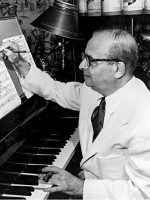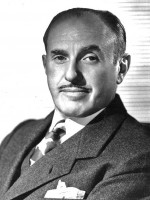David Weisbart is a Producer and Editor American born on 21 january 1915 at Los Angeles (USA)
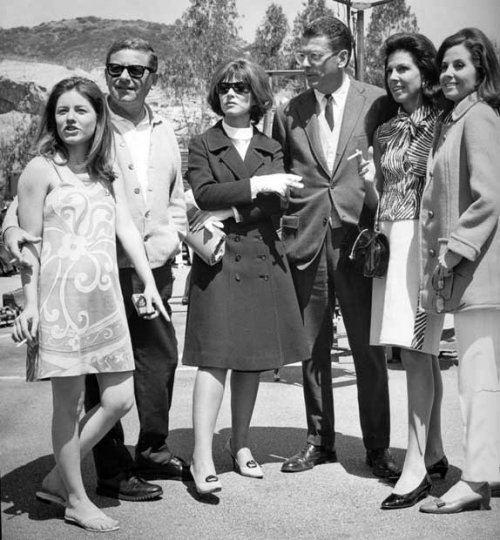
David M. Weisbart (January 21, 1915 - July 21, 1967) was an American film editor and producer.
A native of Los Angeles, California, Weisbart began working in the film industry in 1942 as an editor. Between then and 1951 he was involved with the editing of twenty films, including Mildred Pierce, Night and Day, That Hagen Girl, The Fountainhead, The Glass Menagerie, and A Streetcar Named Desire. He was nominated for the Academy Award for Best Editing for Johnny Belinda.
In 1952 Weisbart became the youngest producer under contract for Warner Bros. and that year produced his first film, Mara Maru, starring Errol Flynn and Ruth Roman. In 1955 Weisbart produced the film for which he would be most remembered: the James Dean classic, Rebel Without a Cause. He joined 20th Century Fox in the middle of 1956 and the following year produced Love Me Tender, the first Elvis Presley film. Weisbart would produce three more Presley movies as well as April Love for another teen idol, Pat Boone.
Weisbart made his last film, Valley of the Dolls in 1967 before he died at the age of fifty-two in Los Angeles.
Persondata
Name
Weisbart, David
Alternative names
Short description
American film producer
Date of birth
January 21, 1915
Place of birth
Date of death
July 21, 1967
Après cette première période, il est producteur sur vingt-sept autres films américains (dont dix westerns), à la Warner et ensuite à la Fox (à partir de 1956), depuis Mara Maru de Gordon Douglas (1952, avec Errol Flynn et Ruth Roman) jusqu'à La Vallée des poupées de Mark Robson (avec Barbara Parkins et Patty Duke). La première de cet ultime film a lieu le 15 décembre 1967, à peine moins de cinq mois après sa mort prématurée, des suites d'un accident vasculaire cérébral.
Entretemps, mentionnons La Fureur de vivre de Nicholas Ray (1955, avec James Dean et Natalie Wood), Le Temps de la colère de Richard Fleischer (1956, avec Robert Wagner et Terry Moore), Les Rôdeurs de la plaine de Don Siegel (1960, avec Elvis Presley et Steve Forrest) et Rio Conchos de Gordon Douglas (1964, avec Richard Boone et Stuart Whitman). Notons que La Fureur de vivre obtient en 1957 une nomination au British Academy Film Award du meilleur film.
À la télévision, David Weisbart est producteur exécutif de deux séries-westerns, Jesse James (1965-1966) et Custer (1967), la seconde dont il est en outre le créateur.
Source : Wikidata
David Weisbart

- Infos
- Photos
- Best films
- Family
- Characters
- Awards
Nationality USA
Birth 21 january 1915 at Los Angeles (USA)
Death 21 july 1967 (at 52 years) at Los Angeles (USA)
Birth 21 january 1915 at Los Angeles (USA)
Death 21 july 1967 (at 52 years) at Los Angeles (USA)
David M. Weisbart (January 21, 1915 - July 21, 1967) was an American film editor and producer.
A native of Los Angeles, California, Weisbart began working in the film industry in 1942 as an editor. Between then and 1951 he was involved with the editing of twenty films, including Mildred Pierce, Night and Day, That Hagen Girl, The Fountainhead, The Glass Menagerie, and A Streetcar Named Desire. He was nominated for the Academy Award for Best Editing for Johnny Belinda.
In 1952 Weisbart became the youngest producer under contract for Warner Bros. and that year produced his first film, Mara Maru, starring Errol Flynn and Ruth Roman. In 1955 Weisbart produced the film for which he would be most remembered: the James Dean classic, Rebel Without a Cause. He joined 20th Century Fox in the middle of 1956 and the following year produced Love Me Tender, the first Elvis Presley film. Weisbart would produce three more Presley movies as well as April Love for another teen idol, Pat Boone.
Weisbart made his last film, Valley of the Dolls in 1967 before he died at the age of fifty-two in Los Angeles.
Persondata
Name
Weisbart, David
Alternative names
Short description
American film producer
Date of birth
January 21, 1915
Place of birth
Date of death
July 21, 1967
Biography
Au sein de la Warner, David Weisbart est monteur de vingt-et-un films américains, le premier sorti en 1942. Le dernier est Un tramway nommé Désir d'Elia Kazan (avec Vivien Leigh et Marlon Brando), sorti en 1951. Entretemps, citons Nuit et Jour de Michael Curtiz (1946, avec Cary Grant et Alexis Smith), Les Passagers de la nuit de Delmer Daves (1947, avec Humphrey Bogart et Lauren Bacall), Johnny Belinda de Jean Negulesco (1948, avec Jane Wyman et Lew Ayres) et Le Rebelle de King Vidor (1949, avec Gary Cooper et Patricia Neal). Johnny Belinda lui vaut en 1949 une nomination à l'Oscar du meilleur montage.Après cette première période, il est producteur sur vingt-sept autres films américains (dont dix westerns), à la Warner et ensuite à la Fox (à partir de 1956), depuis Mara Maru de Gordon Douglas (1952, avec Errol Flynn et Ruth Roman) jusqu'à La Vallée des poupées de Mark Robson (avec Barbara Parkins et Patty Duke). La première de cet ultime film a lieu le 15 décembre 1967, à peine moins de cinq mois après sa mort prématurée, des suites d'un accident vasculaire cérébral.
Entretemps, mentionnons La Fureur de vivre de Nicholas Ray (1955, avec James Dean et Natalie Wood), Le Temps de la colère de Richard Fleischer (1956, avec Robert Wagner et Terry Moore), Les Rôdeurs de la plaine de Don Siegel (1960, avec Elvis Presley et Steve Forrest) et Rio Conchos de Gordon Douglas (1964, avec Richard Boone et Stuart Whitman). Notons que La Fureur de vivre obtient en 1957 une nomination au British Academy Film Award du meilleur film.
À la télévision, David Weisbart est producteur exécutif de deux séries-westerns, Jesse James (1965-1966) et Custer (1967), la seconde dont il est en outre le créateur.
Best films
Usually with
Filmography of David Weisbart (43 films)
Producer
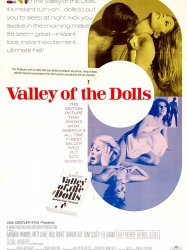
Valley of the Dolls (1968)
, 2h3Directed by Mark Robson
Origin USA
Genres Drama, Musical theatre, Musical, Romance
Themes Films about television, Children's films
Actors Barbara Parkins, Sharon Tate, Patty Duke, Susan Hayward, Lee Grant, Tony Scotti
Roles Producer
Rating60%





Three young women meet when they embark on their careers. Neely O'Hara (Duke) is a plucky kid with undeniable talent who sings in a Broadway show—the legendary actress Helen Lawson (Hayward) is the star of the play—while Jennifer North (Tate), a beautiful blonde with limited talent, is in the chorus. Anne Welles (Parkins) is a New England ingenue who recently arrived in New York City and works as a secretary for a theatrical agency that represents Lawson. Neely, Jennifer, and Anne become fast friends, sharing the bonds of ambition and the tendency to fall in love with the wrong men.
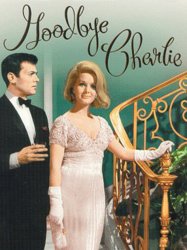
Goodbye Charlie (1964)
, 1h57Directed by Vincente Minnelli, David S. Hall
Origin USA
Genres Science fiction, Comedy, Fantasy, Romance
Themes Films about religion, Films about sexuality, Théâtre, LGBT-related films, Films based on plays, Children's films, LGBT-related films, LGBT-related film
Actors Debbie Reynolds, Tony Curtis, Pat Boone, Joanna Barnes, Ellen Burstyn, Martin Gabel
Roles Producer
Rating60%





Hollywood writer Charlie Sorrel (Harry Madden) is shot and killed by Hungarian film producer Sir Leopold Sartori (Walter Matthau) when he is caught fooling around with Sartori's wife. Later, passerby Bruce Minton III (Pat Boone) comes to the aid of a dazed woman (Debbie Reynolds) wandering on a beach. She doesn't remember much other than directions to Charlie's residence.
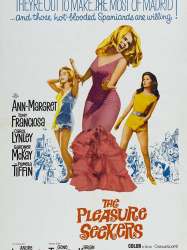
The Pleasure Seekers (1964)
, 1h47Directed by Jean Negulesco
Origin USA
Genres Drama, Comedy, Musical, Romance
Actors Ann-Margret, Anthony Franciosa, Carol Lynley, Gene Tierney, Gardner McKay, Pamela Tiffin
Roles Producer
Rating56%





Three beautiful American women come to Madrid and fall in love. Susie Higgins (Pamela Tiffin) arrives and moves in with her old friend Maggie Williams (Carol Lynley) and roommate Fran Hobson (Ann-Margret). Susie experiences a culture shock, when she is informed by Maggie and Fran that all rich, attractive men are taken, and all attractive but poor ones are too proud to take on American women.

The Pleasure Seekers (1964)
Directed by Jean Negulesco
Origin USA
Genres Drama, Comedy, Romantic comedy, Musical, Romance
Themes Children's films
Actors Ann-Margret, Anthony Franciosa, Carol Lynley, Gardner McKay, Pamela Tiffin, André Lawrence
Roles Producer
Rating56%





Trois jeunes femmes co-locataires découvrent les joies de l'amour à Madrid en faisant la connaissance de la gente masculine.

Rio Conchos (1964)
, 1h47Directed by Gordon Douglas
Origin USA
Genres Comedy, Action, Romance, Western
Themes Children's films
Actors Stuart Whitman, Richard Boone, Edmond O'Brien, Anthony Franciosa, Vito Scotti, Wende Wagner
Roles Producer
Rating65%





An ex-Confederate Army officer (Richard Boone) named Jim Lassiter, who has been out for revenge against Apache Indians who massacred his family, recovers a stolen U.S. Army repeating rifle from some Apaches he has killed; as the Apache have proven formidable with lesser weaponry, there is cause for concern should they become equipped with such superior firepower.

Follow That Dream (1962)
, 1h49Directed by Gordon Douglas
Origin USA
Genres Drama, Comedy, Comedy-drama, Musical
Themes Films about music and musicians, Musical films
Actors Elvis Presley, Anne Helm, Arthur O'Connell, Joanna Moore, Simon Oakland, Jack Kruschen
Roles Producer
Rating64%





A vagabond family composed of Pop Kwimper (Arthur O'Connell), his son Toby (Elvis Presley), and various "adopted" children, including nineteen-year-old Holly Jones (Anne Helm), is traveling in Florida when Pop drives onto an as-yet-unopened section of highway. When the car runs out of gas, Holly persuades Toby to persuade Pop to take up residence on the land next to the road. A chance encounter with an avid fisherman (Herbert Rudley) gives Holly an idea. They build a thriving business catering to sports fishermen.
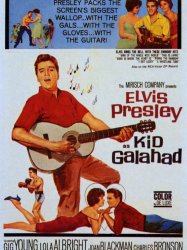
Kid Galahad (1962)
, 1h35Directed by John Flynn, Phil Karlson
Origin USA
Genres Drama, Comedy, Comedy-drama, Musical
Themes Films about music and musicians, Sports films, Martial arts films, Boxing films, Musical films, Le boxe anglaise
Actors Elvis Presley, Lola Albright, Gig Young, Joan Blackman, Charles Bronson, Robert Emhardt
Roles Producer
Rating60%





Willy Grogan is a small-time boxing promoter based in the Catskills resort region of Cream Valley, New York. He owns the Grogan's Gaelic Gardens inn. He is a contemptible man and is in debt and pays little attention to the woman who loves him, Dolly, a chain-smoking, love-starved woman residing at the camp. Into their midst comes Walter Gulick, a young man recently discharged from the Army who loves the peaceful setting almost as much as he loves working on old cars. Walter's simple goal is to go into business as a mechanic at a nearby garage.
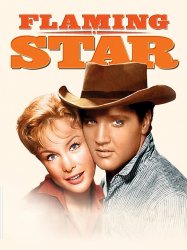
Flaming Star (1960)
, 1h41Directed by Don Siegel, Michael D. Moore, Richard Talmadge
Origin USA
Genres Drama, Action, Romance, Western
Themes Children's films
Actors Elvis Presley, Barbara Eden, Dolores del Río, Steve Forrest, Rodolfo Acosta, John McIntire
Roles Producer
Rating64%





Elvis Presley plays Pacer Burton, the son of a Kiowa mother and a Texan father working as a rancher. His family, including a half-brother, Clint, live a typical life on the Texan frontier. Life becomes anything but typical when a nearby tribe of Kiowa begin raiding neighboring homesteads. Pacer soon finds himself caught between the two worlds, part of both but belonging to neither.
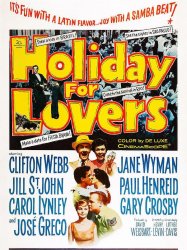
Holiday for Lovers (1959)
, 1h43Directed by Henry Levin
Origin USA
Genres Comedy
Themes Films based on plays
Actors Clifton Webb, Jane Wyman, Jill St John, Carol Lynley, Paul Henreid, Gary Crosby
Roles Producer
Rating56%





Robert Dean (Clifton Webb) is an old-fashioned psychologist who reluctantly allows his oldest daughter Meg (Jill St. John) to join a four-week tour in São Paulo before returning to college in America. When he finds out she is planning on six more weeks, he immediately books a ticket to Brazil to find out what her true motives for staying are. He is accompanied by his loving wife Mary (Jane Wyman) and youngest daughter, the wise-cracking, joyful Betsy (Carol Lynley). Upon arriving, Robert is unamused by the notable character change in a daughter. She looks to be very much interested in her older mentor Eduardo Barroso (Paul Henreid), and has taken up habits which are shocking to Robert, including smoking.
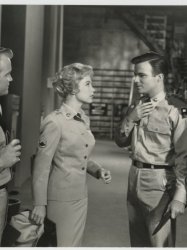
A Private's Affair (1959)
, 1h33Directed by Raoul Walsh
Origin USA
Genres Comedy, Musical
Themes Military humor in film, Children's films
Actors Sal Mineo, Christine Carrère, Barry Coe, Barbara Eden, Jessie Royce Landis, Gary Crosby
Roles Producer
Rating55%





Two guys from New York—Luigi, a hip wanna-be beatnik and Jerry, who's from Long Island—end up in Army basic training in New Jersey, as does Mike, who's a rancher from Oregon.

These Thousand Hills (1959)
, 1h36Directed by Richard Fleischer
Origin USA
Genres Drama, Action, Western
Themes Films about sexuality, Erotic films, Films about prostitution, Erotic thriller films
Actors Don Murray, Richard Egan, Lee Remick, Patricia Owens, Stuart Whitman, Albert Dekker
Roles Producer
Rating62%





Albert Gallatin "Lat" Evans (Don Murray), an earnest young cowboy determined to better his situation, wins a job with a cattle drive by busting a wild horse. Befriended by cowhand Tom Ping (Stuart Whitman}, Lat fantasizes about owning his own ranch and being rich one day, unlike his father, who died "broke, a failure." When the drive reaches a small Wyoming town, the cowboys congregate at the saloon, where Jehu (Richard Egan), an unscrupulous rancher, proposes racing one of their horses against his swift steed. Lat accepts the challenge, and is in the lead when his opponent throws a blanket at his face, causing Lat to lose his balance and fall from his horse. Marshal Conrad (Albert Dekker), the town's upstanding banker, intervenes, however, and declares Lat the winner.

April Love (1957)
, 1h37Directed by Henry Levin
Origin USA
Genres Drama, Comedy, Musical, Romance
Themes Films about music and musicians, Musical films, Children's films
Actors Pat Boone, Shirley Jones, Dolores Michaels, Arthur O'Connell, Jeanette Nolan, Bradford Jackson
Roles Producer
Rating61%





Nick Conover (Pat Boone), a Chicago youth, is moving to the Kentucky horse farm of his Aunt Henrietta Bruce (Jeanette Nolan) and Uncle Jed Bruce (Arthur O'Connell), neither of whom has he seen since he was a child. This move, suggested by Aunt Henrietta, is part of Nick’s parole condition after being convicted for joyriding in a stolen vehicle with his friends. The judge agreed to this condition as it would get Nick away from those influences which are the cause of his criminal problems. However, Uncle Jed did not and does not want Nick in his home, and is openly hostile toward him upon his arrival. No one else in the area knows why Nick has moved here besides the local sheriff.

Between Heaven and Hell (1956)
, 1h34Directed by Richard Fleischer
Origin USA
Genres Drama, War, Action
Themes Seafaring films, Transport films, Political films, Children's films
Actors Robert Wagner, Buddy Ebsen, Terry Moore, Broderick Crawford, Robert Keith, Brad Dexter
Roles Producer
Rating65%





In 1945, on a Pacific island, Sam Gifford (Wagner) is busted from platoon sergeant to private and reprimanded by his battalion commander for striking an officer. Because he had earned a Silver Star, he is given a choice of being sentenced to the United States Disciplinary Barracks in Leavenworth or transferred to George Company, a de facto punishment company assigned to a dangerous area of the front lines. Gifford chooses the punishment company, which is commanded by Captain Grimes, a former First Sergeant (Broderick Crawford). Captain Grimes insists everyone call him "Waco", wears no rank insignia and forbids military salutes lest he become a target for snipers. Everyone in George Company hates Waco except for some pre-war regular army comrades-in-arms Millard (Frank Gorshin) and Swanson (Skip Homeier), who act as Waco's personal bodyguards. Impressed by Gifford's combat record, Waco offers him a membership in his private circle as a radio operator. This ends when Gifford beats up Swanson for making suggestive remarks about his wife's photograph. Waco burns the photograph. The incident triggers flashbacks in which Sam relives the path that brought him to this purgatory.

Love Me Tender (1956)
, 1h29Directed by Robert D. Webb
Origin USA
Genres Drama, Action, Musical, Romance, Western
Themes Films about music and musicians, Musical films, Political films, Children's films
Actors Richard Egan, Debra Paget, Elvis Presley, Ken Clark, Neville Brand, Mildred Dunnock
Roles Producer
Rating61%





Presley plays Clint Reno, the youngest of the four Reno brothers who stays home to take care of his mother and the family farm as older brothers Vance, Brett and Ray fight in the American Civil War for the Confederate Army. The family is mistakenly informed that eldest brother Vance has been killed on the battlefield. After four years of war, the brothers return home and find that Vance's girlfriend Cathy has married Clint. Although Vance accepts this wholeheartedly ("We always wanted Cathy in the family"), the family has to struggle to reach stability with this issue. The subplot of unresolved passion carries the film; it is clear from the outset upon the Reno brothers return home that Cathy still loves Vance, although she is true to the younger Clint. Honor prevails for Vance, but jealousy turns Clint into an irrationally thinking rival for the love of the heroine.

Our Miss Brooks (1956)
, 1h25Directed by Al Lewis
Origin USA
Genres Comedy
Themes Films about education
Actors Eve Arden, Gale Gordon, Gene Barry, Don Porter, Robert Rockwell, Jane Morgan
Roles Producer
Rating63%





 Connection
Connection




